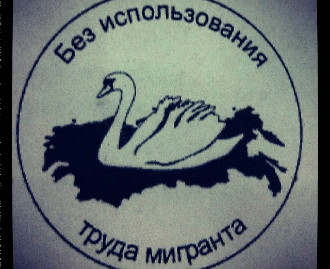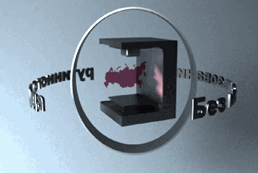The 3D printer should stand next to the “White Swan”, or about the national characteristics of trademarks.

In the northern capital, in St. Petersburg, a cool initiative is proposed - to create a trademark on “Without the use of migrant labor” products with the image of a white swan . This sign will mean that the production of the product is not used migrant labor. The initiative itself is very good and far-sighted. It thereby supports local producers. But, this initiative has no reinforcements, without which it would remain a beautiful gesture or, even worse, would achieve a simple redistribution of workers and specialists in the same system by origin.
Let me explain why the second option is even worse than the first.
Suppose consumers began to buy mostly goods with the quality mark of the “White Swan”, even if the product itself has become more expensive. Migrants safely stopped coming, and those who have already arrived assimilated or returned. There would be no problem with migrants in the country. But there would be other problems. The fact is that a simple replacement of migrants in the workplace by local workers would have already created a number of problems. New workers would like to work less and get more (not all, of course, but in comparison with migrants). They, as representatives of the local population, would use their full influence to obtain additional privileges. The trade unions would develop gradually, at the very least, but protecting their own workers. But they would want more privileges, as they are accustomed to working either in the office or in order to have migrants in their submission. All this would lead to higher prices for the product.
On the other hand, throughout the world, the process of reducing the cost of a product and automation and robotization of labor is underway. Where there are no robots, migrants work. In this regard, imported products would be cheaper, while domestic prices would increase. And even a patriotic consumer could not stand it and began to take cheaper products. In this situation, the country could be surrounded by duties. But that would mean closing up the gap.
')
On the other hand, high-tech deserted productions would appear. They would give out a cheaper domestic product, but at the same time destroy jobs. Those. would be in conflict with the existing network of trade unions and old industries, where migrants were simply replaced by local ones, from which these industries became even more expensive. But now the old production would not want to just leave the stage. They got support in the form of a busy local population. Previously, it would have been easier to dismiss and disperse migrants, and with local problems more.
In general, the mere replacement of migrants by local workers to perform monotonous or physical labor would not solve the problem, but only aggravate it.
But migrants are now the same brake on new technologies, as they offer very cheap labor, sometimes even cheaper than carrying out an increase in labor productivity.
Therefore, it is not enough to put pressure on businessmen who use migrants. It is necessary to put pressure on backward production, on production and services with low productivity.

gifok.net/image/KNGR
One of the measures of such pressure could be the introduction of the trademark "Without the use of routine labor." The logo of this sign can be with the image of a 3D printer or a robot.
Here I already anticipate questions from right-wing and left-wing socialists: What will happen to the workers? How to deal with unemployment?
Then I want to ask them the following question: Instead of fighting the main trends in the 21st century economy, in spite of progress, creating fictitious parasitic jobs and giving out large benefits, can it be better to try to facilitate the transition of society to a new quality?
I will answer you with the words of Jeremy Rifkin, said back in the 90s about the coming changes brought about by the Third Industrial Revolution:
“We are entering a new era of global markets and automated production. The path to the economy with almost no workers is clearly visible. Whether this journey leads to a safe haven or to a terrible abyss will depend on how well civilization can prepare for the post-market era that follows the third industrial revolution. The end of the work can mean the death sentence of civilization in the form in which we know it. The end of the work can also signal the beginning of a new social transformation, the rebirth of the human spirit. The future is in our hands. ”
Rifkin also wrote about the end of the era of white-collar workers and the automation of services.
On the one hand, it is necessary to develop the IT sector and raise creative and intellectual specialists. On the other hand, to engage in various non-market projects.
And quality marks are small elements of the transformations that need to be carried out in society. They are heralds of the new time.
Source: https://habr.com/ru/post/207094/
All Articles